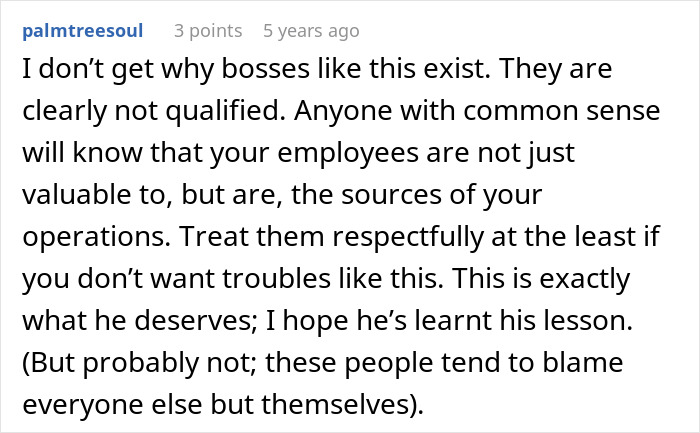A high employee turnover rate usually means that the company is in big trouble. It indicates that there are lots of problems just beneath the surface. This might be toxic management, a boss with a temper, low pay, no growth opportunities, a culture of overwork, or… all of the above.
When your boss laughs at you for having serious medical issues, it might be worth considering looking for other work opportunities. This is exactly what happened to Reddit user u/pumpkinbean16. She shared how she decided to get back at her boss after he made fun of her for having to leave in the middle of the shift due to sun poisoning. Scroll down for the story in full, as shared on r/pettyrevenge.
Managers need to properly support their employees, otherwise, they might soon find themselves working alone

Image credits: YuriArcursPeopleimages (not the actual photo)
A security guard revealed how her toxic boss reacted to her asking to leave work early to deal with a very serious medical issue





Image credits: shotprime (not the actual photo)
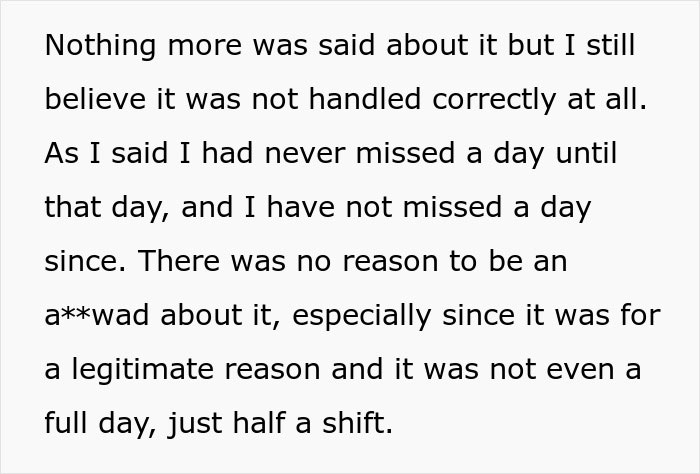

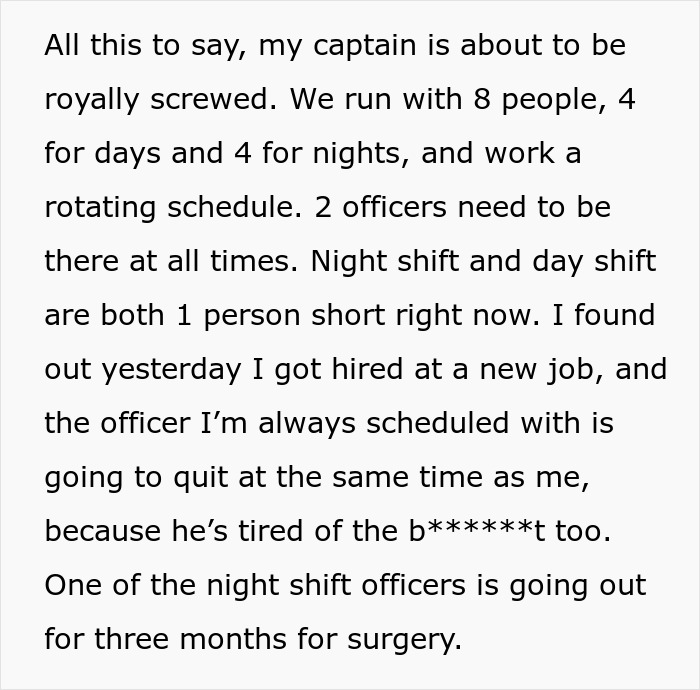



Image credits: Michał Jakubowski (not the actual photo)
The author later updated her post with some very important info



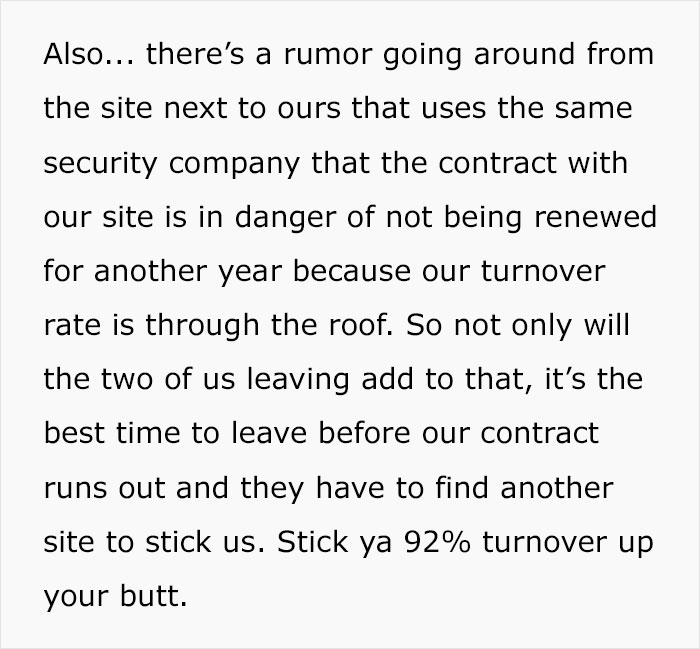
Image credits: pumpkinbean16
Employee retention is a serious challenge, but it’s not an insurmountable one
According to ‘Indeed,’ the most common causes for high turnover rates include overwork, inconsistent management styles, a lack of recognition, as well as few opportunities for professional development.
On top of that, companies push their employees away by offering them few career advancement opportunities (if any!), a low salary, barely any raises, and poor benefits. In other words, the workers see that it’s probably not worth their time and effort to stay when they have better opportunities elsewhere.
Other factors to consider include poor company culture, as well as friction between management and their subordinates.
However, it’s not like you can wave a magic wand and solve all of these issues overnight. Reworking company culture and policy, as well as giving your managers proper leadership training, is going to take genuine effort and time. And lots of it!
Ideally, you want to aim to create an atmosphere of cooperation and collaboration, rather than one of constant tension. People are a lot more satisfied and productive when they don’t have to be in a state of constant stress.
Getting there means having greater transparency, better feedback, and good communication. It also means having clear(er!) guidelines for work performance, evaluations, raises, and promotions. You should also be clear about the goals the company wants to achieve, and why it’s important. People like having purpose and more clarity in their lives.

Image credits: Marc Mueller (not the actual photo)
Workers do a better job when they know that their superiors support them
Next, and there’s no way around it, but the business has to offer a competitive salary and benefits. Sure, the work itself might be purposeful and interesting. But if your staff lives paycheck to paycheck, they might opt to jump ship and work for your competitors so they don’t struggle financially anymore.
Or, to put it simply, if you want skilled, talented, and creative people to work for you, you have to be willing to offer them what they’re worth. Somebody who does quality work but constantly gets lowballed and sidelined will eventually run out of patience.
Similarly, offering free coffee and having a foosball table and video console in the office isn’t ‘hip’ or ‘cool’ anymore: it’s what most of your competitors are doing. You need to find ways to stand out with proper, practical benefits packages.
Those might include health insurance, more vacation days, quality teambuilding activities, or better flexibility when it comes to work hours. In short, upper management needs to communicate with their employees to see what they value the most. They should also do some research to see what their competitors do, then take that, and improve on it.
Aside from that, it’s probably worth investing in the entire staff. That means leadership training for managers, as well as funding relevant skill training for everyone else. However, none of those things matter all that much if the people in charge have little to no emotional intelligence or empathy.

Image credits: Product School (not the actual photo)
The security guard was kind enough to answer some internet users’ questions




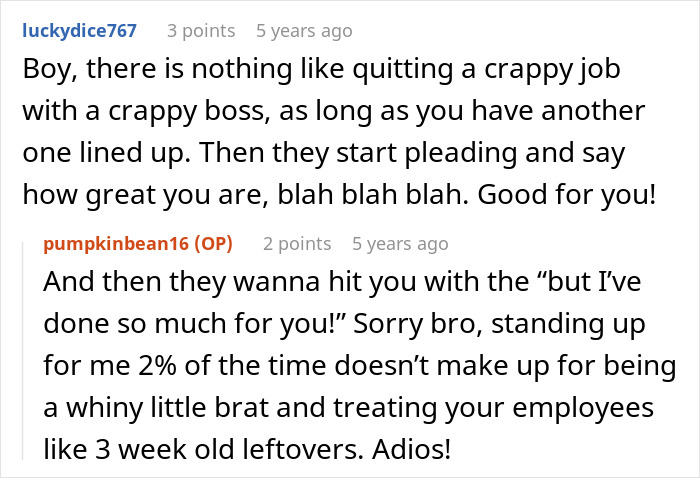

The story got a lot of attention online. Here’s how some readers reacted after reading it








